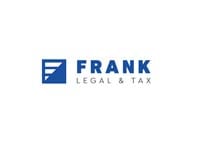News and developments
How To Legally Rent Out A Property in Thailand
As part of the steady economic recovery from the COVID-19 crisis, Thailand is gradually attracting tourists back into the country. Due to the increased number of visitors, short-term rentals through platforms such as Airbnb, including daily rentals, are in high demand, encouraging villa and condominium owners to set up short-term rentals by allowing tourists to stay in their properties. However, it is important to understand the legal implications of setting up short-term rentals in Thailand as a host.
Below, we classify three different property scenarios:
In most condominiums, daily rentals are usually prohibited as condominiums are not legally recognized as hotels under the law. As a result, condominium unit owners must check the rules and regulations of that particular condominium and the previous minutes from co-owner meetings before deciding to proceed with short-term rentals through Airbnb, booking.com, Agoda, or similar websites, as there may be certain restrictions.
Whereas for villas, short-term rentals are much more flexible as, in most cases, there are no rules and regulations applicable as in the case of condominiums. It must be noted that according to Article 1 of the Ministerial Regulation B.E. 2551 (2008), a hotel license is needed for villas or buildings with over four rooms and a capacity for over 20 guests. For most villas, this threshold for a hotel license is usually not met. Furthermore, Section 4 (2) of the Hotel Act B.E. 2547 states that the definition of “hotel” does not include accommodations established for the purpose of monthly rentals. As a result, if the villa qualifies as a hotel in terms of size and capacity, but the property is rented out monthly only, it will not be subject to the Hotel Act, which means that a hotel license or a notification of a non-hotel is not required.
If the condominium units or villas qualify as a non-hotel through daily rentals by having less than four rooms and for a capacity of 20 guests or less, a notification must be submitted to the local district office using the following documents:
It is important to note that the illegal operation of a hotel is subject to a jail sentence for up to one year or a fine of up to THB 20,000 and an additional fine of up to THB 10,000 a day throughout the period of violation, according to Section 59 of the Hotel Act.
If you have any questions related to property in Thailand, please do not hesitate to contact us at [email protected]
View the original article on the FRANK Legal & Tax website
